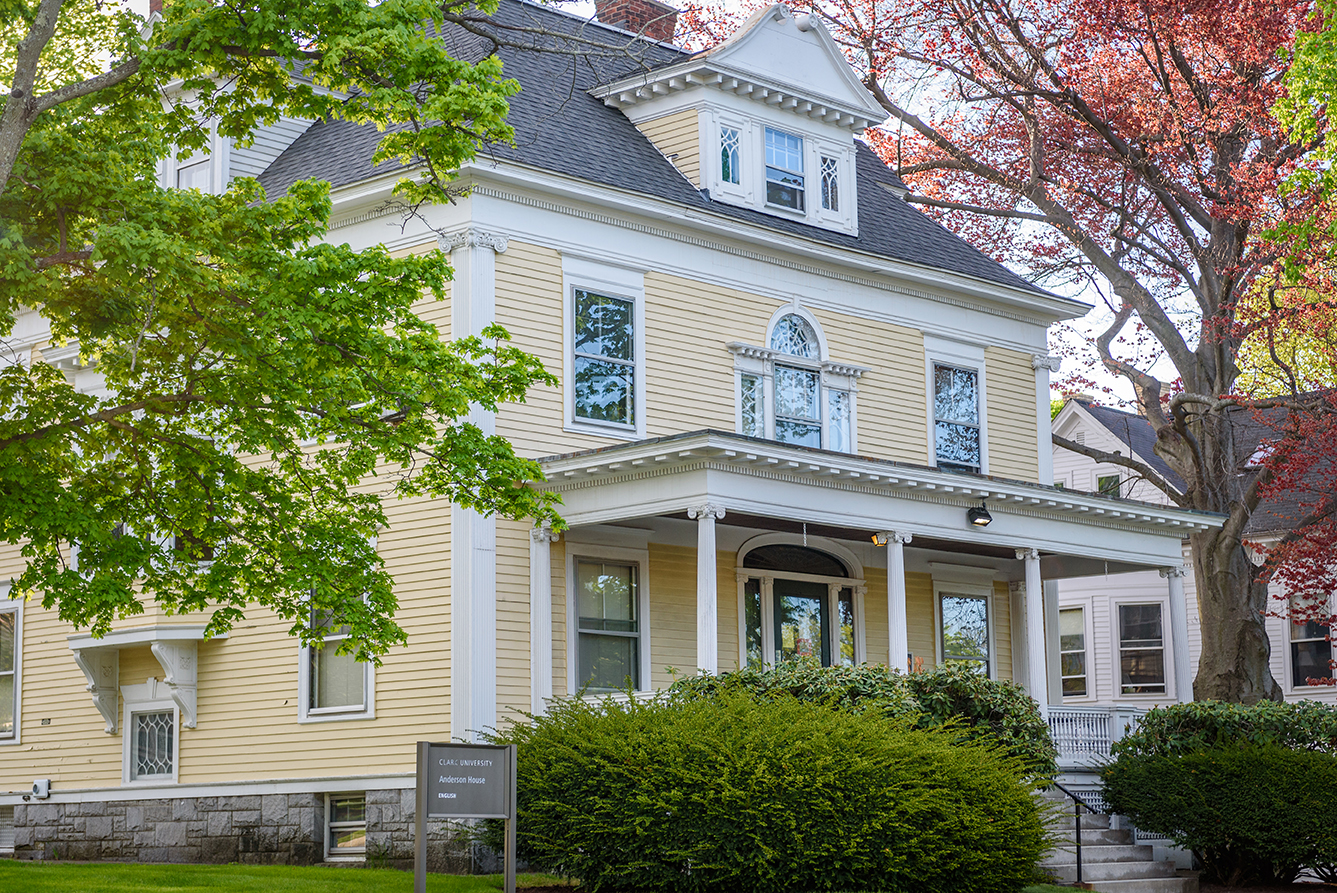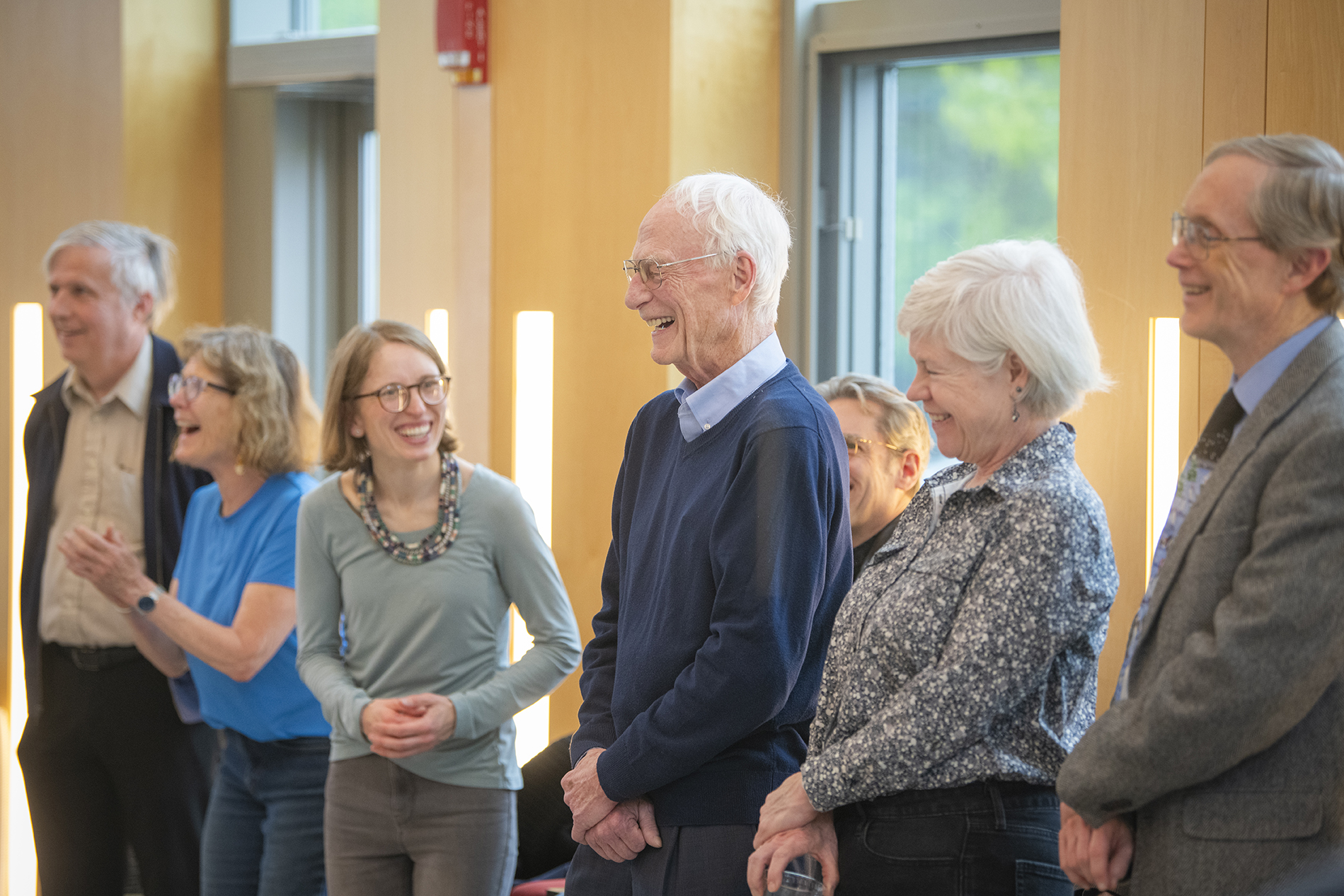Event celebrates 20th anniversary of “African American Literary Theory”
Anderson House is home to Clark University’s English Department.Clark University will honor the life and work of late E. Franklin Frazier Chair and Associate Professor of English Winston Napier with a weekend-long virtual conference featuring timely performances and conversations about African American intellectual thought and culture.
The Winston Napier Conference: Then and Now, will be held Oct. 23-25, beginning at 5 p.m. each day, as part of Clark’s African American Intellectual Series. Convened by Professor Kourtney Senquiz, the Winston Napier Conference celebrates the 20th anniversary of Professor Napier’s foundational “African American Literary Theory” — the first volume to document the central texts and arguments in African American literary theory from the 1920s through the present.

“Professor Winston Napier helped to establish the foundations of African American literary theory within literary and cultural studies,” says Lisa Kasmer, associate professor of English and chairwoman of Clark’s English Department. “At Clark University, his scholarship formed the cornerstone of the inspiring African American Intellectual series. Winston Napier’s legacy reflects Clark’s continued commitment to diversity, equity, and inclusion.”
The conference, held via Zoom, will begin on Friday evening with an introduction by friends, family members, and former students and colleagues who will share memories of Napier and play a slideshow of old photos that were found on a CD at Anderson House and used previously for his 2008 memorial. A poetry performance by Nicole M. Young will follow, as well as a roundtable discussion about the evolution of Black art with Young, James Smethurst — a former colleague and friend of Napier who was invited to speak at Clark in the early 2000s — and Kristina Wilson, professor of art history at Clark.
Saturday will feature a keynote address by Napier’s friend and former colleague, Peniel Joseph, professor at the University of Texas at Austin’s Lyndon B. Johnson School of Public Affairs. His address will be followed by a conversation with Ousmane Power-Greene, professor of history at Clark.

“Peniel Joseph was invited, in 2007, to do a C-SPAN series for the African American Intellectual Series that Winston started. Winston’s invitation helped spark academic interest in Dr. Joseph’s work,” Senquiz says. “Ousmane Power-Greene will be having a conversation with Dr. Joseph and we’re inviting students, faculty, and staff to contribute to the Q&A.”
Joseph recently released a book, “The Sword and the Shield: The Revolutionary Lives of Malcolm X and Martin Luther King Jr.,” that explores Black activism and political thought — upending misconceptions about the historic figures and revealing a nuanced portrait of two men who inspired each other throughout their lives.
The conference will conclude on Sunday with a conversation about the Genius Children concert series moderated by Benjamin Korstvedt, chairman of the Department of Visual and Performing Arts and professor of music at Clark. Closing marks will be delivered by Esther Jones, associate provost and dean of the faculty, who currently holds the E. Franklin Frazier Chair of African American Literature, Theory, and Culture.
“Winston was someone who has influenced people not just at Clark, but nationally and worldwide, and continues to influence people with his anthology,” Senquiz says. “His text brings everything together in one spot. He did amazing work and was way ahead of his time, and I think he will continue to manifest in our lives.”
Senquiz adds that this weekend’s events will bring together scholars who focus on different topics but are all working in the same realm of intellectual culture and social justice.
“It’s wonderful because Winston started this work many years ago. What’s important is to think of the progression of this consciousness in African American intellectual culture, but also how it resonates with us nationally and globally,” she says.
The conference is co-sponsored by the Higgins School of Humanities, the Office of the Provost, the Department of English, the Department of Visual and Performing Arts, and the Center for Gender, Race, and Area Studies. Members of the Clark community and the general public are welcome. For more information and to access the Zoom link, click here.





